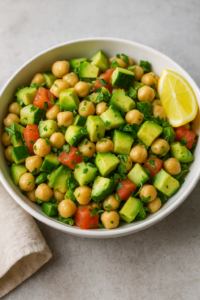Food is essential to our body to work optimally. We get most of the nutrients and antioxidants we need from fruits and vegetables. That said, you need to ensure that you have a diet that includes as many fruits and vegetables to get the nutrients and antioxidants that will help strengthen your immune system. That would mean a diet that contains vitamin E, vitamin D, and selenium.
These are rarely found in processed food (unless enriched), and your body has more chances of absorbing what it needs when you eat fresh whole foods. Leafy greens, nuts, citrus fruits are all excellent choices of foods that are high in nutrients and antioxidants that are known to boost your immune system.
Here’s a list of food that you will want to have on your weekly grocery list.
Meat and Alternatives
Brazil Nuts
Brazil nuts are at the top of our list because it is one of the most reliable sources of selenium. Selenium is a powerful antioxidant and is one of the essential minerals for our health and immunity. Just one nut can provide up to 96 micrograms (mcg), which is already above the daily recommendation.
The daily intake recommendation is 55 micrograms of selenium for an adult.
Fish
Fish and, more specifically, tuna is an excellent source of selenium. One ounce of tuna can provide around 30 mcg of selenium. Other fish and seafood are usually between 12 mcg and 20 mcg of selenium per ounce.
Salmon is also a good choice to help the immune system. It contains a lot of “healthy fat” (omega-3), which is known to strengthen the immune system and reduce the risks of heart disease.
Lentils
If you eat a vegan or vegetarian diet, lentils are a great substitute to fish. One cup of lentils can provide around 6 mcg of selenium. They are also a good source of immune-boosting nutrients, fiber, and protein.
Sunflower Seeds
Sunflower seeds are very high in vitamin E. One ounce can provide 76% of your daily intake, which is 15 milligrams. Vitamin E is also a potent antioxidant like selenium, which help fight infection since it enhances the immune system.
Yogurt
Since yogurt contains live culture (or probiotics), it is a great way to help us fight bacteria by bringing good bacteria in the body and help improve digestion. Kefir is also another option that brings as many benefits to our gut.
Vegetables
Broccoli
Most cruciferous vegetables have phytonutrients that can help boost the immune system. Broccoli is rich in antioxidant vitamins, and one serving contributes to a third of the daily intake recommended for vitamin A.
Carrots
Not only does carrot contain vitamins A, B, C, and E, it also contains zinc.
Zinc is known to be an essential mineral for the health of our immune system. If the body is deficient in nutrients like zinc, it weakens the immune system and makes viruses stronger.
Garlic
Another vegetable that has a similar effect on our immune system as zinc is garlic. Garlic has the ability, according to some research, to keep a cold at bay (and maybe vampires?). Some studies even demonstrate that individuals who were living with cancer were able to boost their immune system by increasing their intake of garlic.
Spinach
Spinach is a significant source of vitamin C but also contains vitamin E. It is essential to keep it raw to ensure that you get all the nutrients from it. You can add it to a salad or a sandwich.
Sweet Potatoes
If you are trying to increase your intake of vitamin A, sweet potato is the one ingredient you need. One serving contains more than three times the daily recommendation of vitamin A and is also full of other good antioxidants.
Fruits
Citrus Fruits
Most people are aware that citrus fruits are full of vitamin C. Vitamin C is critical to the immune system. Its consummation recommendation is 75 mg to 90 mg a day. Just add sliced lemon to your water, which will provide around 50% of the daily intake. You can also eat grapefruit or orange with
your breakfast. This breakfast will be the other half of your consumption for the day.
Blueberries
Berries, in general, are packed with antioxidants. Blueberries are at the top of all the fruits and vegetables for the number of antioxidants it contains.
Not only does research show the power of blueberries on our immune system, but it is also linked to a lower risk of stomach fat, cholesterol, heart diseases, and cancer.
Watermelon
The watermelon is also full of immune-boosting nutrients. It’s an excellent source of potassium (which helps regulate the body functions), vitamin A and vitamin C.
Pomegranates
Since pomegranates contain a great variety of antioxidants, it is a great choice to cover many nutrients that we need. It is known to have antiinflammatory proprieties and therefore help us with immunity.
Spices
Turmeric
Many of you have probably heard of the benefits of turmeric. Recently, turmeric has become a popular supplement, but it is even better if you can add it as an ingredient to your recipes. Turmeric can reduce inflammation and interact as a poison for cancer cells.
Mushrooms
Mushrooms are a type of fungus that can help stimulate the immune system. The Reishi mushroom and the Agarikon mushrooms are two mushrooms that have been studied and show an impact on our immune system.
Reishi
Studies show that the Reishi mushroom can interfere with a virus and reduce its ability to attach to our cells to multiply.
Agarikon
As for the Agarikon mushroom, it has anti-inflammatory quality and can also be an antibacterial agent.
The foods recommended above are ingredients that you can add to your meals, especially when you approach the flu season. Feel free to make a salad with spinach, add some lentils and sunflower seeds. You could also make a homemade citrus dressing for it (only add orange juice to olive
oil).




 Protected by Patchstack
Protected by Patchstack